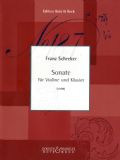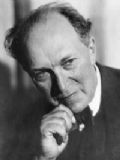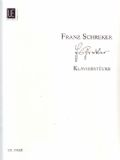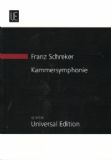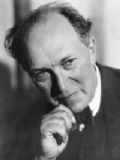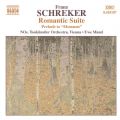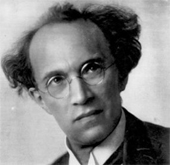
Franz Schreker
In the first two decades of the twentieth century, Franz Schreker was considered the most significant German-language opera composer besides Richard Strauss * Der Ferne Klang (The Distant Sound, 1912), Die Gezeichneten (The Marked Ones, 1918) and Der Schatzgräber (The Treasure-Digger, 1920) were performed regularly on stages in German-speaking countries * Influenced by Freud and Schnitzler in his operatic texts in which deep psychological insights figure prominently * His distinctively European style, which amalgamates contemporary French and Italian influences with an idiom close to late-Wagner and Mahler, was attacked by the increasingly nationalistic and anti-Semitic attitudes of the 1920s and the Nazis branded his music 'degenerate' * Influential teacher whose pupils included Brand, Goldschmidt, Hába, Krenek, Rathaus and Szpilman * As a result of a Schreker revival in the 1980s and early 1990s, is now widely regarded as one of the leading Austro-German post-Romantics and many of his lesser-known stage and concert works have been rediscovered * Notable Schreker conductors include Gielen, Metzmacher, Sinaisky, Thielemann, Welser-Möst and Zagrosek
Works by Franz Schreker include:
Flammen (Flames) (1901-02) Opera in one act
Symphony in A minor op.1 (1899)
Scherzo (1900) for string orchestra
Das Weib des Intaphernes (The Wife of Intaphernes) (1933) Melodrama for narrator and orchestra
"A brilliant first work… a one-act opera of such suspense, density, imagination, profoundness and originality that you relish every single note. The vocabulary of sounds used is familiar to us, the language, however, is new and absolutely fresh." — Volker Hagedorn, DIE ZEIT on Flammen
Bestselling Titles by Franz Schreker
-
Publisher: Bote & BockUsually despatched within 7-10 working days - Lead times may vary in the case of supplier shortages or delays$24.12
-
Publisher: Universal EditionUsually despatched within 7-10 working days - Lead times may vary in the case of supplier shortages or delays$127.64
-
Publisher: Universal EditionUsually despatched within 7-10 working days - Lead times may vary in the case of supplier shortages or delays$30.47
-
Publisher: Universal EditionUsually despatched within 7-10 working days - Lead times may vary in the case of supplier shortages or delays$36.82
-
Publisher: Universal EditionUsually despatched within 7-10 working days - Lead times may vary in the case of supplier shortages or delays$42.55
-
Publisher: Select MusicSpecial Order: Usually despatched within 10-15 working days - Lead times may vary in the case of supplier shortages or delays$7.52$6.39



